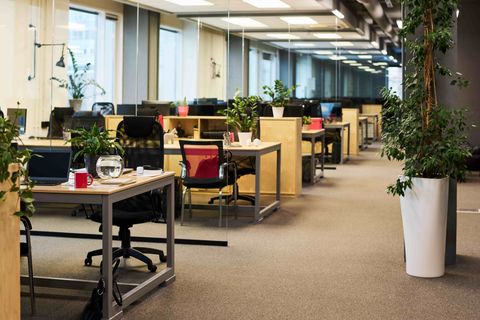Explore Coworking in Vietnam: A Complete Guide with Insights and Tips for Professionals
Coworking in Vietnam refers to flexible workspaces where professionals, freelancers, startups and even small teams share a common facility rather than a traditional dedicated office. These spaces exist because the nature of work is changing — with more remote work, freelance activity, international teams, and startups looking for flexible, efficient work settings. In major Vietnamese cities such as Ho Chi Minh City and Hanoi, rising business activity, increasing infrastructure, and the growth of digital services have driven demand for such flexible workspace solutions.
 Importance
Importance
The rise of coworking affects many groups and addresses several practical issues:
-
It matters for freelancers, entrepreneurs, remote workers, and small teams who may not want long-term leases.
-
It matters for international professionals working in Vietnam who need a professional setting with infrastructure and connectivity.
-
It solves problems such as isolation (by providing community), high real-estate cost (by providing flexible terms), and the need for modern amenities and networking opportunities.
-
It contributes to urban economic growth by making workspace more accessible, supporting startup ecosystems, and enabling global remote work arrangements.
-
As working styles change (hybrid, remote, mobile), coworking provides an alternative to fully home-based work or rigid corporate offices.
Recent Updates
Several recent trends and developments (2024-2025) in Vietnam’s coworking scene are worth noting:
-
According to a January 2025 report, the coworking segment in Ho Chi Minh City experienced strong growth in 2024, with new supply and demand shifts. Vietnam Investment Review - VIR+1
-
A market-forecast report indicates the Vietnam co-working office space market is projected to grow at a compound annual growth rate (CAGR) of around 15.3% from 2025 to 2033. IMARC Group
-
Demand is extending beyond central urban zones into suburban districts and secondary cities as providers diversify locations and services. en.vcci.com.vn+1
-
Technology and green design are becoming integral: co-working spaces are incorporating smart utilities, sustainable features, and community-centric design to appeal to modern users. IMARC Group+1
-
The global trend toward remote work and digital nomadism is also influencing Vietnam, with mention of remote-worker friendly mobility and coworking uptake. dongdmc.com
Laws or Policies
The coworking sector in Vietnam is shaped by a range of regulations and government initiatives:
-
Zoning and land-use laws determine how commercial real estate (including coworking) can be operated; decisions on land allocation, building permits and usage categories matter for providers.
-
Labour and foreign investment regulations: For international professionals using coworking spaces, visa and work-permit rules apply. For example, policies affecting digital nomads or foreign-invested enterprises may influence coworking usage.
-
Government programmes promoting innovation and startup ecosystems: Vietnam has been advancing policies to support high-tech zones and startup infrastructure, which tend to include support for flexible work environments.
-
Building safety, fire-safety and occupational health regulations apply to any workspace — coworking spaces must comply with Vietnamese building codes, fire-protection standards and work-place safety requirements.
-
Environmental and sustainability policies: As coworking operators implement green design, regulations regarding energy efficiency and building certification may become relevant.
Tools and Resources
Professionals exploring coworking in Vietnam can make use of the following tools and resources:
-
Online directories and maps of coworking locations in Vietnam (for cities like Ho Chi Minh City, Hanoi, Da Nang) that allow filtering by amenities, location and community features.
-
Community networking platforms or apps (LinkedIn groups, local startup forums) that list coworking events, meet-ups, and workshops within coworking spaces.
-
Resource guides and articles on flexible workspace trends in Vietnam (e.g., market research reports, sector analysis from property consultancies).
-
Business support templates such as checklists for choosing a coworking space (amenities, connectivity, location, community, terms) and templates for remote-team hybrid arrangements.
-
Professional association or incubation hub websites that list coworking-friendly programmes for startups and remote teams.
Example Table: Key Considerations When Choosing a Coworking Space in Vietnam
| Consideration | What to Check | Why It Matters |
|---|---|---|
| Internet & Connectivity | Speed, reliability, backup link | Enables productivity and remote-team interactions |
| Location & Access | Transport links, local amenities | Ease of commuting, lifestyle fit |
| Community & Events | Networking opportunities, workshops | Supports professional growth and collaboration |
| Flexibility & Terms | Duration, membership options, scalability | Aligns with changing team or personal needs |
| Infrastructure & Design | Natural light, ventilation, comfort | Affects wellbeing, especially for all-day use |
FAQs
What types of professionals use coworking spaces in Vietnam?
Freelancers (writers, designers, developers), startup founders, remote employees of local or foreign firms, small teams, digital nomads and innovation-driven professionals all use coworking spaces.
Which cities in Vietnam are considered strong for coworking?
Ho Chi Minh City and Hanoi remain the primary hubs. Additionally, cities such as Da Nang are gaining traction, especially with remote-work friendly offerings. dongdmc.com+1
What amenities should a good coworking space provide?
Key amenities include reliable high-speed internet, meeting rooms, flexible workspace options, comfortable community zones, networking events, and convenient location with access to transport and local services.
How does the coworking market cost-structure differ from traditional office leasing?
Unlike long-term leases, coworking agreements tend to be more flexible in duration, scale and commitment, allowing professionals and teams to scale up or down as needed. Providers may offer memberships, daily passes or dedicated desks.
Is coworking suitable for remote international professionals?
Yes, for many remote professionals who want dedicated workspace rather than working from cafés or home, coworking in Vietnam offers professional infrastructure, community and networking opportunities. Consider factors like visa status, location, time-zone alignment and language support.
Conclusion
Coworking in Vietnam is more than a temporary trend: it reflects evolving work styles, rising entrepreneurship, remote-team arrangements and growth in flexible infrastructure. For professionals, freelancers and small teams, coworking offers a practical alternative to conventional offices — with adaptability, connectivity and community built in.
With strong growth projections, expanding locations, and increasing alignment with technology and sustainability, the coworking landscape in Vietnam is positioned for transformation in the coming years. Understanding the options, regulatory environment and available resources can help professionals navigate this space more effectively.






